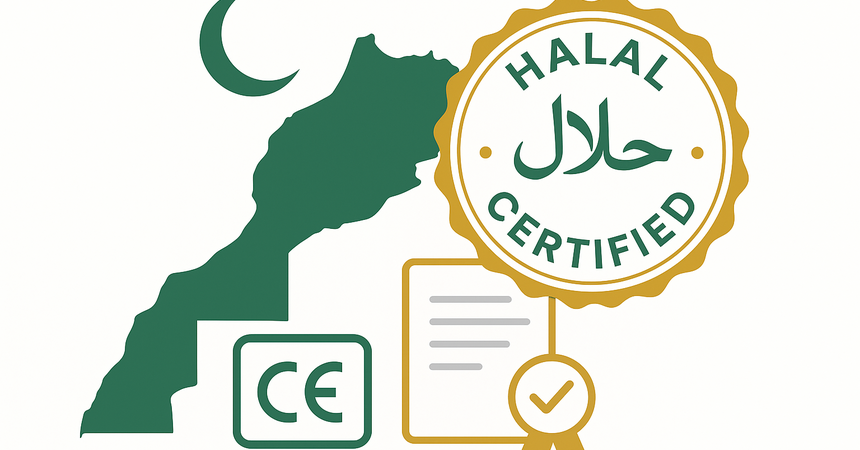Morocco is one of the largest Muslim countries in North Africa, with more than 99% of its population practicing Islam. This means that the market for halal-compliant goods has strategic importance for both local producers and foreign exporters.
In recent years, halal certification has gone far beyond the food industry. It now covers cosmetics, pharmaceuticals, logistics, and even tourism services. For companies targeting the Moroccan market, halal certification is becoming an essential tool for competitiveness.
The Halal Market in Morocco
1. Food Sector- Main focus: meat, dairy products, confectionery.
- Demand for imported goods is steadily growing, especially for poultry, beef, and ready-to-eat products.
- A young population and global trends are driving steady demand for halal cosmetics.
- In 2023, Morocco’s halal cosmetics market grew by more than 12%.
- Increasingly, medicines must prove compliance with halal standards.
- This is particularly relevant for capsules, supplements, and products with animal-derived components.
- • Tourism and logistics are also adopting halal standards, creating new opportunities for investors.
For Food Products
- Ban on pork and its derivatives.
- Ban on alcohol and alcohol-based ingredients.
- Animals must be slaughtered according to Sharia rules.
- Production lines must be separated from non-halal products.
- For Cosmetics and Pharmaceuticals
- Exclusion of animal-derived components not compliant with Sharia.
- Ban on alcohol-based ingredients.
- Proof of purity and safety in the production process.
- For Logistics and Services
- Halal products must be transported and stored separately from prohibited goods.
- Tourism services (hotels, food, entertainment) must comply with Islamic standards.
Halal Certification Trends in Morocco
1. Expanding Range of Halal Products– The market now includes cosmetics, pharmaceuticals, fashion, and tourism in addition to food.
2. Growth of Halal Exports to Other African Countries
– Morocco is becoming a transit hub for shipments to West and Central Africa.
3. Integration with International Standards
– Increasing recognition of certificates issued by accredited international bodies.
4. Sustainability and Halal
– Rising demand for combining halal certification with “green” standards (ISO 14001, organic certifications).
Common Mistakes Exporters Make
- Trying to enter the market with only ISO or HACCP without obtaining halal certification.
- Overlooking specific ingredient categories (gelatin, emulsifiers, flavorings) that require special verification.
- Failing to prepare local packaging and labeling indicating halal status.
- Starting the certification process too late—after signing export contracts.
Conclusion
Halal certification is not just a religious requirement but a powerful tool for entering the Moroccan market and strengthening positions in Africa and beyond. It builds consumer trust, opens access to government tenders, and simplifies cooperation with distributors.WorldWideBridge offers a full range of halal certification services: from consulting and document preparation to obtaining certificates recognized in Morocco and other countries. We provide turnkey solutions to help exporters confidently enter the halal products market.
